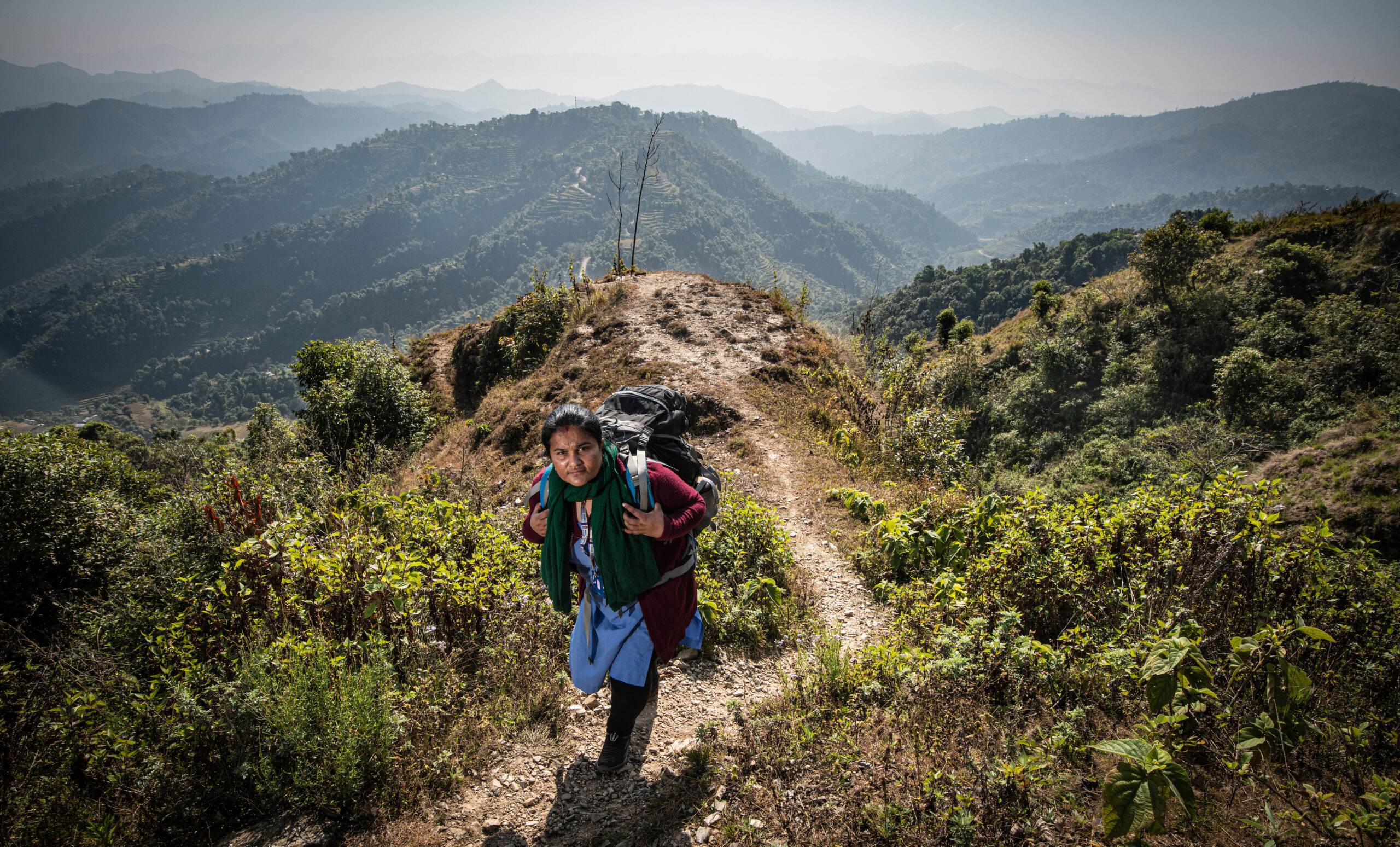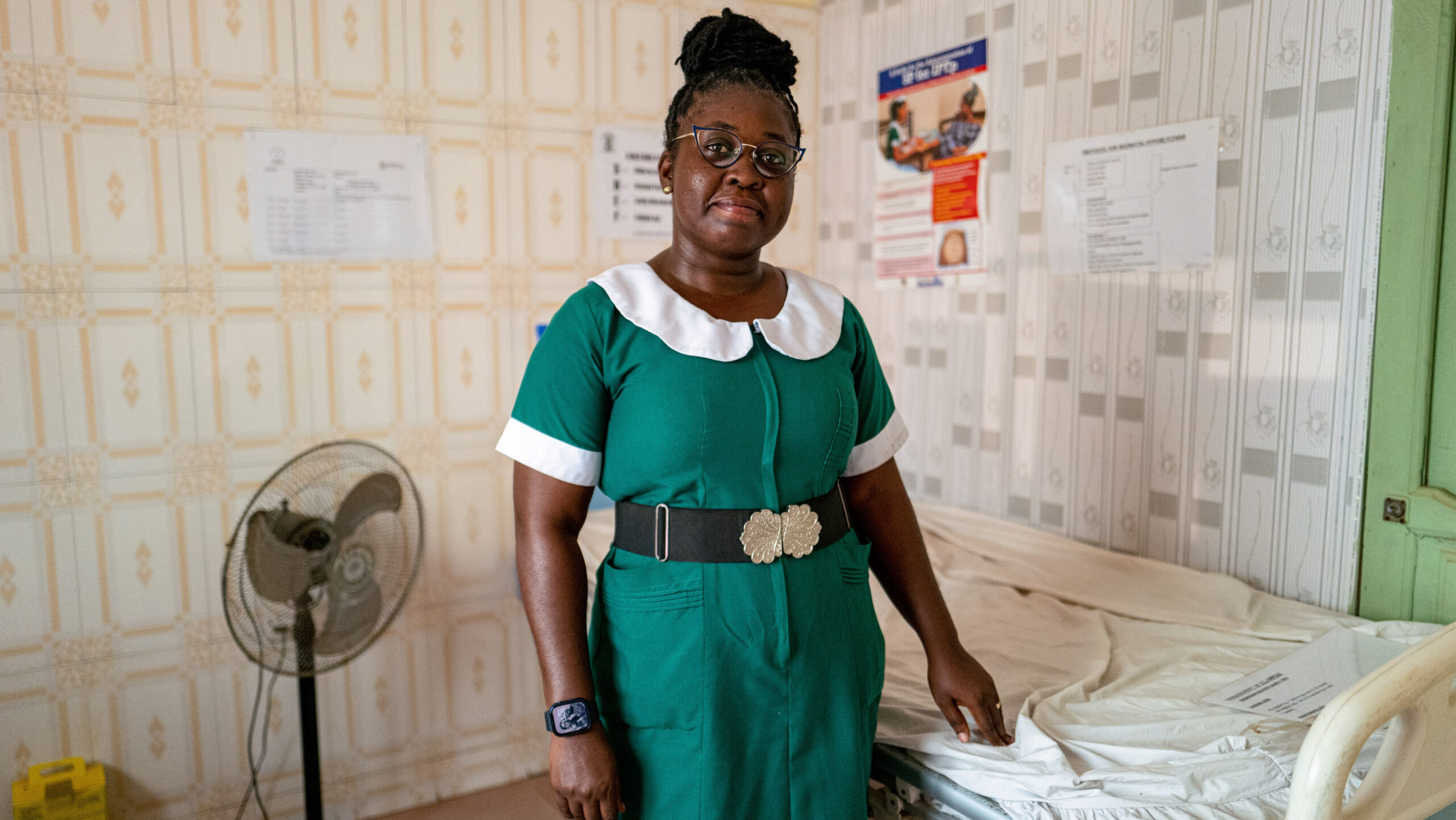Delivering babies is just one part of being a midwife.
Thanks to the close relationships they build with their clients, midwives are well placed to support with a wide range of sexual and reproductive health experiences, from contraceptive counselling, to providing abortion care.
With reproductive rights at a crossroads in the US, we’re shining a light on midwives around the world going the extra mile to deliver choice.
Coming from the old English term for ‘with woman’, midwives around the world play an essential role in supporting the autonomy and choices of women throughout their reproductive lives. In some cases, that will mean assisting a woman with the birth of their first child. In others, it will mean supporting them to end a pregnancy or providing life-saving post-abortion care following an unsafe abortion. In every case, it means supporting people to make whichever reproductive choices feel right for them and their future.
At MSI, our global cohort of MSI Ladies – trained midwives who deliver a range of sexual and reproductive health and rights in their communities – embody this commitment. Not all heroes wear capes. Some wear blue overalls and go from door to door in their local communities, carrying a blue backpack filled with life-saving healthcare. Some work in remote mountain villages, others in bustling cities along the equator. All are connected by a shared commitment to bring choice, and the opportunities that choice brings, to their communities.
In this article, we introduce you to two of these MSI Ladies – Pragati and Auxilia.
Meet Pragati

Pragati Soti Khanal’s bag is packed with hand sanitiser, medical equipment and a box with an assortment of pills; it weighs an impressive 15kg. Some days she walks, other days she hitches a ride in a passing car or bus to reach the remote communities in Nepal’s mountains above the clouds. It is here, in the Tanahun district that she provides contraception and safe abortion services to local women, men and their families.
For Pragati being a midwife is more than just a job. “Family planning gives a woman control of her own body. …they should have the right to do what they want with their own body,” Pragati shared. “[Medical abortion] is related to the dignity of women, it allows them to do this without all of the eyes on them. That’s why it is important to me.”
Each month she provides around 15 medical abortions and about 30 women receive a contraceptive service from her. These services are legal in Nepal, yet still highly stigmatised. So, to raise awareness, educate her community and help remove stigma for current and future generations, Pragati also provides counselling and discussion groups for women in her home. Pragati’s own children, aged 10 and 13 are invited to listen in too.
By providing reproductive choice in communities with no other access, Pragati’s contraception and safe abortion services are changing lives and supporting futures.
“Those who have used my services come to me and say I’ve saved their lives,”
Pragati shared.
Meet Auxilia
Auxilia Alvarez was around 15 when she attended her first birth. Her father was a traditional birth attendant in their remote Oaxaca village, Santa Cruz Ocotal, in Mexico, and he brought her along to learn. Today, a trusted midwife in her own right, she serves the neighbouring village of San Juan Bosco Chuxnaban.
Auxilia continues to attend births, but also offers services beyond what her father had provided. Thanks to support from MSI Mexico, she provides a range of contraception to women in this mountainous region. Before MSI came to the village, Auxilia would make the six-hour drive to Oaxaca city to stock up on condoms, which she sold from the small clinic and pharmacy she runs with her sister Anastacia. Unsafe abortion was also a serious problem in the region.
Since Auxilia was already trusted within her community, women were comfortable coming to her for family planning advice, and she was well placed to be trained to deliver a wider range of contraceptive options. “People already know us and look for us,” she explains.
Now, a bright blue banner hangs outside her clinic advertising contraceptives, as well as basic supplies like pregnancy tests that were previously hard to come by in the remote town, or just too expensive. By making contraception more accessible, Auxilia is helping reduce unintended pregnancy, and the desperate and dangerous decisions that can follow, ensuring people in her community can make the reproductive choices that feel right for them and their futures.
Despite the benefits, around the world, the type of care that midwives can provide is still restricted. In many countries, safe abortion and post-abortion care must be signed off by doctors, despite WHO guidance and evidence showing that midwives can provide the services safely.
So, here at MSI we continue to advocate for midwives around the world to have the right training and resources to provide a full range of sexual, reproductive, and non-reproductive healthcare services.
As reproductive rights feel at risk for communities across the United States, we extend our thanks to all the midwives – and our MSI Ladies – around the world, going incredible lengths to support people with their reproductive rights and choices.
Consider donating today to support midwives like Pragati and Auxilia to deliver choice worldwide.








